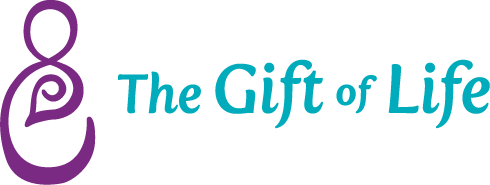Postpartum Depression
Postpartum depression (PPD) is a kind of depression that some women get after having a baby. It's strong feelings of sadness, anxiety (worry) and tiredness that last for a long time after giving birth. These feelings can make it hard for you to take care of yourself and your baby. PPD can start during pregnancy and last through the child’s first year of life. It’s a medical condition that needs treatment to get better.
Gift of Life Foundation Licensed Clinical Provider Articia Hunter discusses mental health and pregnancy/parenting during Maternal Mental Health Month, which is observed in May of every year. The occasion highlights the importance and raises awareness of every mother’s mental health during and after pregnancy. Studies show that about 20% of new mothers show signs of a postpartum disorder, with symptoms ranging from anger, guilt, and shame, to lack of interest in the baby. It is important to know that mothers can seek medical help without the fear of judgment. For more information, visit www.golfound.org.
Is PPD the same as the baby blues?
No. PPD lasts longer and is more serious than baby blues. Baby blues are feelings of sadness you may have in the first few days after having a baby. You may have trouble sleeping, be moody or cranky, and cry a lot. If you have feelings that last longer than two weeks, tell your health care provider. He or she can check to see if you may have PPD.
What causes PPD?
We’re not exactly sure what causes PPD, but here is what you need to know.
It can happen to any woman after having a baby
It’s not your fault - You didn’t do anything to cause PPD. It doesn’t make you a bad person or a bad mother.
You are not alone - About 1 in 7 women has PPD after giving birth. It's the most common complication for women who have just had a baby and affects women from every culture, age, income level and race. Treatment can help you feel better.
What are the signs of PPD?
You may have PPD if you experience five or more of these symptoms for more than two weeks:
Feeling depressed most of the day every day
Having severe mood swings – easy to anger
Having little interest in things you normally like to do
Feeling tired all the time
Gaining or losing weight
Having trouble sleeping or sleeping too much
Having trouble bonding with your baby
Thinking about hurting yourself or your baby
Thinking about killing yourself
If you are experiencing these symptoms, call your healthcare provider right away. There are things you and your provider can do to help you feel better. If you’re worried about hurting yourself or your baby, call 911 right away.
Can PPD affect your baby?
Yes. PPD can make it hard for you to take care of your baby. If you have PPD, your baby may:
Have problems bonding with you
Cry a lot
Develop slowly
Have behavior problems
If you see these signs in your baby, tell your provider. Getting treatment early can help both you and your baby.
How is PPD treated?
Your health care provider may ask you some questions, talk to you about your symptoms or perform medical tests to determine if you have PPD. Treatment can include a combination of counseling, medication or a support group. Exercise, eating healthy foods, getting enough rest, and asking your friends and family for support may also help your treatment work better.
*Source: March of Dimes: https://www.marchofdimes.org/pregnancy/postpartum-depression.aspx
Here are local resources that can help:
Alabama Department of Mental Health
(334) 242-3454
www.mh.alabama.gov
BBH Wellness Services
(334) 676-2368
www.bbhwellnessservices.com
Behavioral Medicine, PC
(334) 272-3889
Family Guidance Center
(334) 270-4100
www.familyguidancecenter.org
Health Services, Inc.
(334) 420-5001
www.healthyservicesinc.org
Lighthouse Counseling Center
(334) 286-5980
www.lighthousehelp.org
Mental Health America Montgomery
(334) 262-5500
Montgomery Mental Health Authority
(334) 279-7380
www.mamha.org
Therapeutic Counseling Services, LLC
(334) 239-8328
Additional information
Mental Health America - mentalhealthamerica.net
Mother to Baby - www.mothertobaby.org | 866-626-6847
National Alliance on Mental Illness – www.nami.org | 800-950-NAMI (6264)
National Suicide Prevention Lifeline- suicidepreventionlifeline.org | 800-273-TALK (8255)
Postpartum Progress- www.postpartumprogress.com
Postpartum Support International - www.postpartum.net | 800-944-4773
Postpartum Depression Facts Brochure

